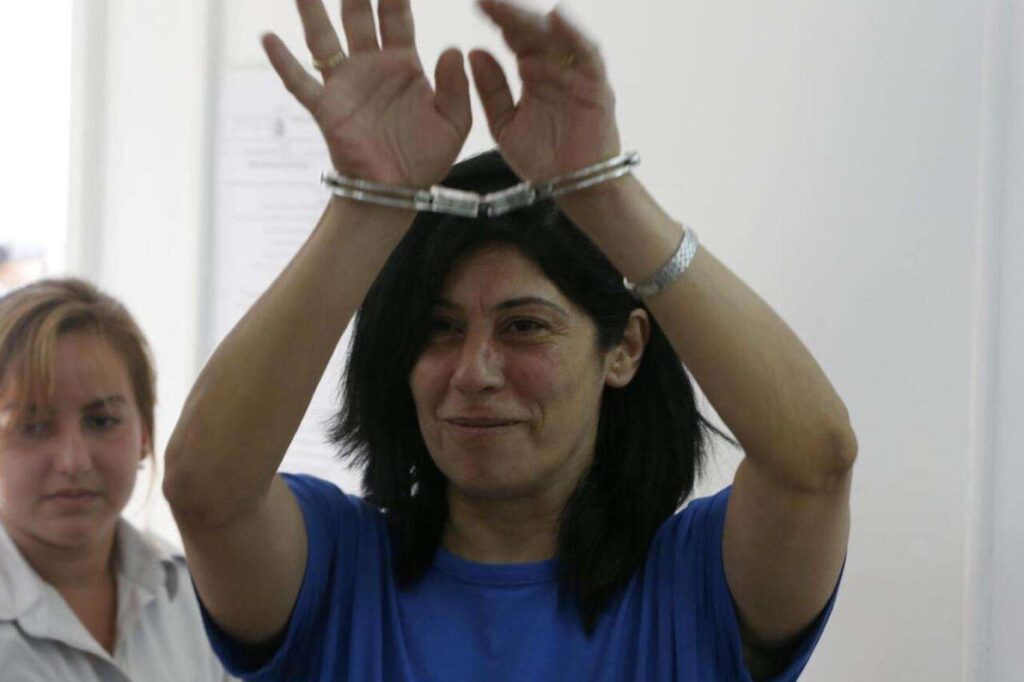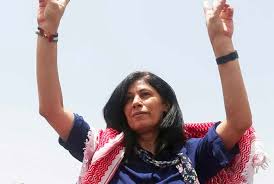Statement of Support for the Release of Palestinian Activist Prisoner Khalida Jarrar
And All Female Prisoners in Occupation Prisons
As the world awaits the results of the ongoing negotiations between the Palestinian resistance in Gaza and the occupation authority through mediators in Egypt and Qatar, with the aim of concluding a deal to exchange Palestinian prisoners in occupation prisons for detained Israelis, and with the hope that these will lead to a ceasefire and end the genocide and ethnic cleansing being inflicted on the Palestinian people, especially women, and children. We observe that the daily life of Palestinians is marked by the imprisonment of hundreds of women in Israeli prisons, where they are subjected to the worst forms of torture, including severe beatings, starvation, rape, and abuse, particularly those detained for their political opinions. These practices reveal the malicious objectives of the Zionist occupation, which forces the Palestinian people to choose between succumbing to torture until death in prisons or surrendering to genocide, forced displacement, and expulsion from their homeland.
The MENA region of the World March of Women strongly condemns the inhumane and brutal practices committed against the imprisoned leader of the Popular Front for the Liberation of Palestine and the General Union of Palestinian Women, and former member of the Palestinian Legislative Council, activist Khalida Jarrar. She was recently transferred from her place of detention to an extremely small solitary cell, barely large enough for a small mattress, devoid of any window or ventilation, with very little water and poor-quality food, and she is completely forbidden from seeingthe light despite her deteriorating health condition.
It should be noted that the activist Khalida Jarrar was arrested over a year and a half ago at her home in Ramallah in the West Bank. It is worth mentioning that this is not her first arrest; she has previously faced repeated arrests lasting over five years, during which she was prevented from bidding farewell to her daughter who passed away while she was in detention.
Activist Khalida Jarrar is just one of many Palestinian women who have been arrested in a desperate attempt to silence the voice of Palestinian women struggling for freedom and independence. This struggle, mixed with pain and hope, patience, dignity, and resilience.
In this context, we wish to highlight the alarming increase in the number of Palestinian female prisoners since last October 7th, reaching [86] female prisoners and administrative detainees as of August 1, 2024.
Palestinian female prisoners in occupation prisons are subjected to severe human rights violations. Among these violations is the denial of adequate medical care by the occupation authorities, leading to the deterioration of the prisoner’s health conditions. In addition, female prisoners face prolonged solitary confinement, psychological pressure, blackmail, and physical and sexual assaults. Female prisoners are also used as bargaining chips in political negotiations, and they are illegally charged and tried in military courts that lack justice.
The MENA region of the World March of Women demands the release of activist Khalida Jarrar and her fellow female prisoners, and calls on all human rights and feminist organizations and associations to support and defend them, and to stand in solidarity with them to stop the inhumane treatment they are subjected to.
The MENA region of the World March of Women also calls on all popular movements supporting the liberation of peoples and the free people of the world to continue to pressure the Zionist occupation, in order to write a new beginning for the Palestinian people by establishing its independent state with Jerusalem as its capital.
World March of Women – MENA
Letter from Khalida Jarrar sent from her cell

“I die a little every day. The cell is like a small closed box that doesn’t let in air; it contains only one thing, a toilet and a small window above, which was closed one day after my transfer. They left me no space to breathe, and even the so-called (ashnaf) in the door of my cell were closed. I only have a small opening left next to which I sit most of the time to breathe. I am suffocating in my cell, waiting for the hours to pass in hopes of finding a few molecules of oxygen to breathe and stay “

